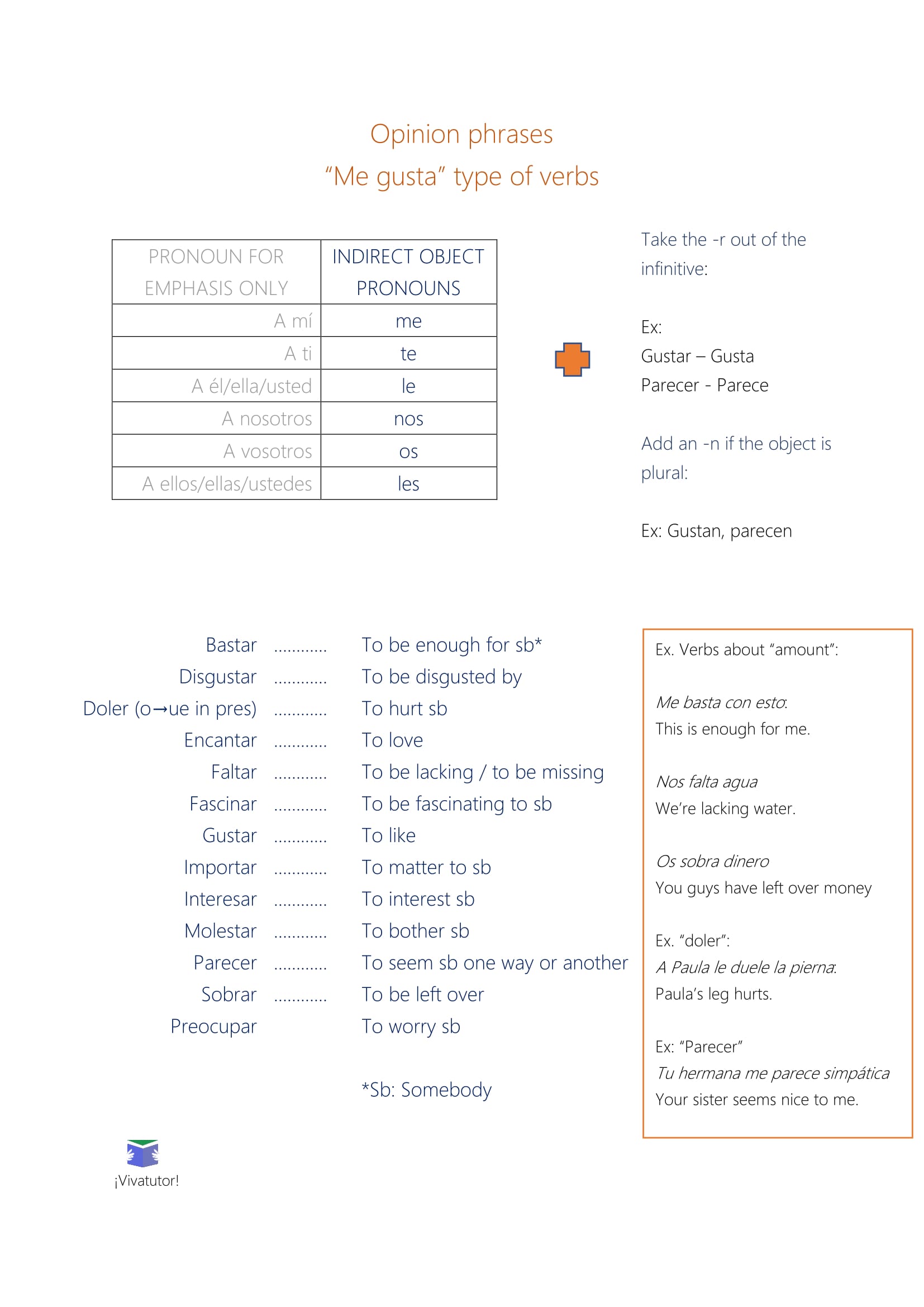Me gusta and similar opinion verbs

Today we're going to learn some important grammar for beginners and I'm sure if you have an intermediate level you could use a recap.
Good news! Chances are you already know "me gusta" (I like) and "me encanta" (I love), well, then you already know two!
These are verbs that are a little bit special, let's see why!
Structure
You need two parts.
Part 1
Indirect object pronoun, as you see in the blue part of the box below, and you choose this depending on who has the opinion.
So for example, if you use "gustar" (to like), I would say "me gusta" using "me", because it's me who likes something.
If it's you who likes something, I'd say "te gusta".
Part 2
You take the infinitive and you take the -r out as you see below.
You also can see on this cheat sheet the list of verbs that work this way.

What verbs are these?
Most of these verbs are about opinion but we also have 3 that are about amount ("to lack", "to have enough", "to have left over"), and also "to hurt" and "to seem".
You have examples of those in the box with the orange frame next to the list.
Now I'm going to do the sentence "I ..." with each of these verbs so you understand better what they mean:
Me basta - It's enough for me
Me disgusta - It disgusts me
Me duele - It hurts me
Me encanta - I love
Me falta -I'm lacking
Me fascina -It fascinates me
Me gusta - I like
Me importa - It matters to me
Me interesa - It interests me
Me molesta - It bothers me
Me parece-It seems to me
Me sobra - I have left over
Me preocupa - It worries me
If what you like, what you have enough of, what fascinates you etc, is more than one thing (plural) then you just add an -n to the verb, like this:
Me fascinan las películas clásicas - Classic movies fascinate me.
Practice
Translate these sentences.
You have the vocab you need for each and also some notes on how we would translate certain things into Spanish.
Recommendation: Apart from with "parecer", use always the same structure: "pronoun" (tiny word in blue) + "verb" (without the -r) + rest of the sentence/"the thing".
She’s lacking concentration
Concentración: ConcentrationThese clothes are enough for me
Ropa: ClothesWe love music
Música: Music (we'll say "the music")Her arm hurts
Brazo: Arm (we'll say "the arm"That coat seems great to you
Genial: Great Abrigo: CoatYou guys have left over blankets
Manta: Blanket (we'll say "the blankets")Insects fascinate him
Insectos: Insects (We'll say "the insects")Noise bothers them
Ruido: Noise (We'll say "the noise")Technology matters to us
Tecnología: Tecnología (We'll say "the technology")